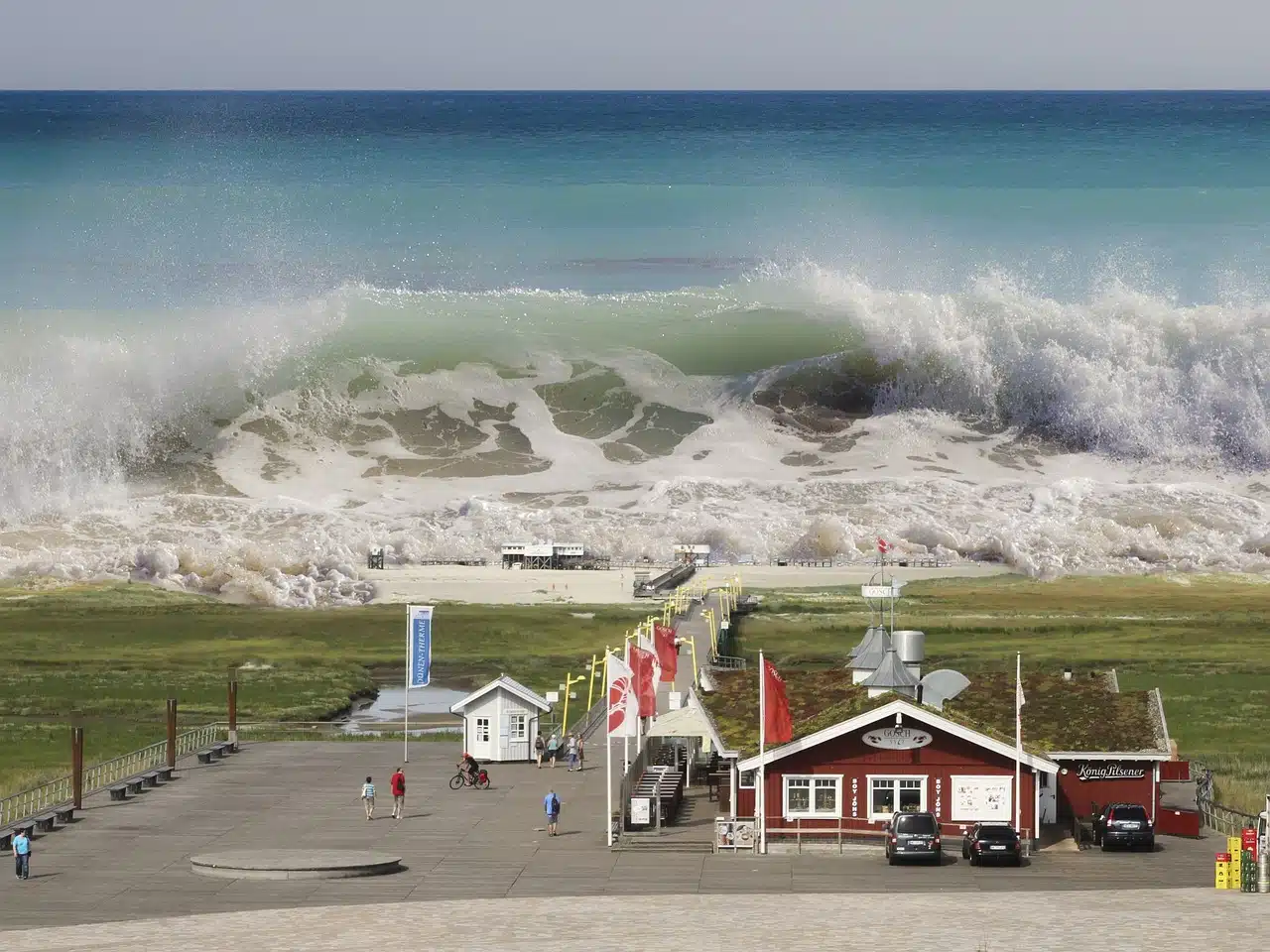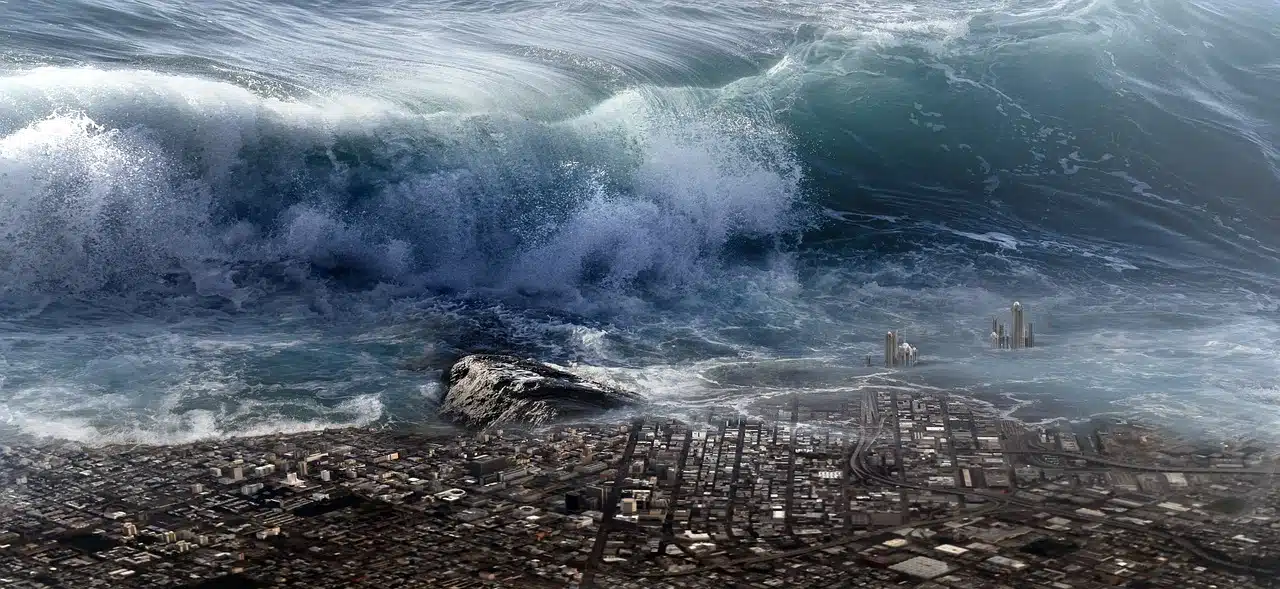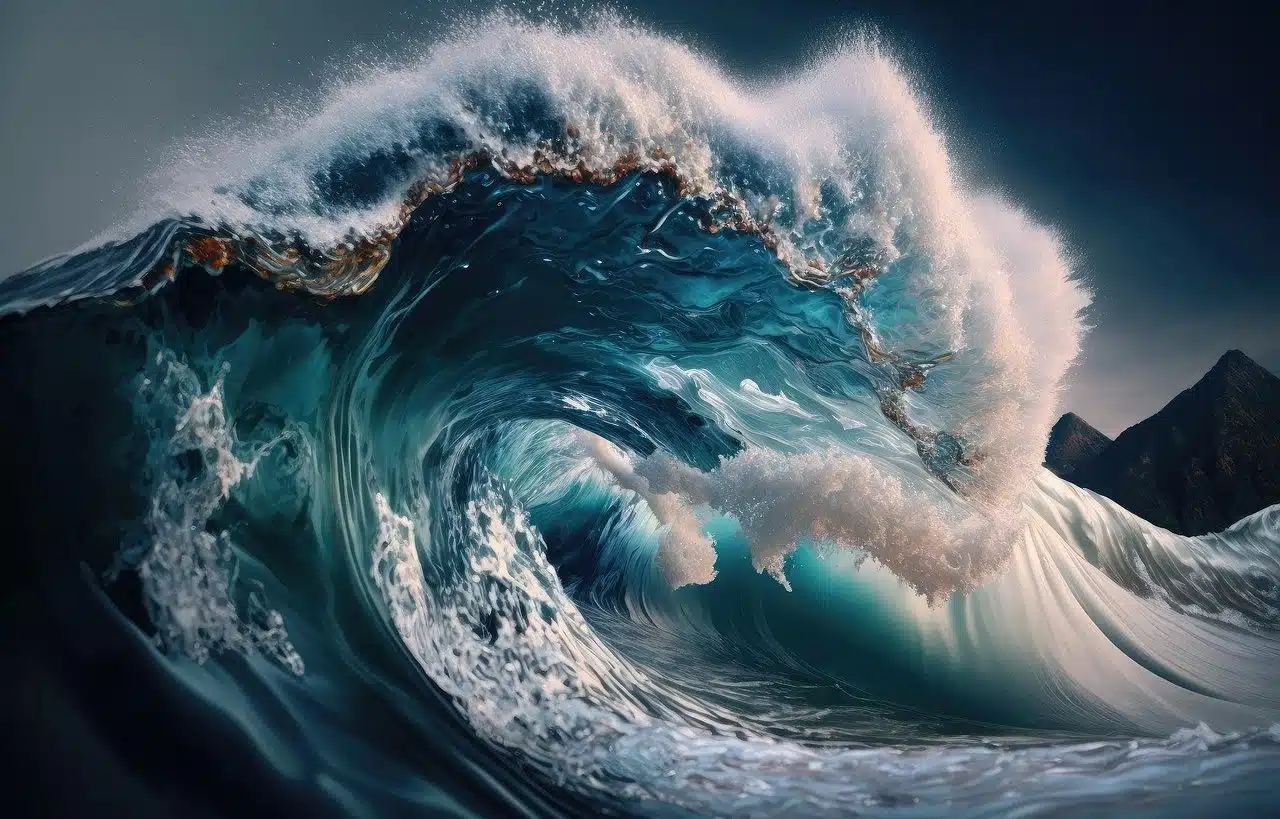
The idea of tsunami is usually used as a synonym for tidal wave.
Tsunami is a synonym for tidal wave , although its specific meaning refers to a wave that destroys the coast. The term, in any case, is not part of the words accepted by the dictionary of the Royal Spanish Academy (RAE)
In both cases it is a violent agitation of the sea waters, from a shaking of the bottom. The tsunami can spread to the beaches and cause serious flooding and a considerable level of destruction that is difficult to overcome for a city with few resources.
The aforementioned shaking of the ocean floor is generally caused by an earthquake or earthquake that generates the vertical displacement of water. In these cases, the most accurate thing is to talk about a tectonic tsunami .
In any case, the concept of tsunami is also used to refer to giant waves that are caused by hurricanes or storms , although they are only surface waves produced by a very strong wind . Even a meteorite falling into the ocean could cause a tsunami.
The 2004 tsunami
Among the latest large- magnitude tsunamis, the one that occurred on December 26, 2004 in Asia , with its epicenter on the west coast of Sumatra ( Indonesia ), stands out. The phenomenon was generated by an earthquake in the Indian Ocean that promoted the tsunami and caused the flooding of many coastal towns .
Specialists estimate that about 230,000 people died as a result of this tsunami. The magnitude of the earthquake was such that it stood at 9.3 on the Richter scale, making it the second largest earthquake since the seismograph was invented.

A tsunami of extreme magnitude is called a megatsunami.
An extreme phenomenon
A phenomenon that has become very popular in recent years, since the aforementioned catastrophe caused by the 2004 Indian Ocean earthquake, is known as megatsunami. It is a tsunami that considerably exceeds the height of a normal one, with an average of half a kilometer of elevation of a wave that is capable of moving through the ocean at a speed greater than 400 km/h and, opposite to its brothers " "minor" can leave the coast behind and break long afterward, causing irreparable destruction and even burying entire cities in its wake.
Although our planet has witnessed more than one megatsunami in its history, the cases investigated date back to such distant times that it is not possible to access testimonies or statements that help reconstruct the events. Likewise, it is impossible to specify the date and location of the next megatsunami that will hit the Earth , although it is known with certainty that it will take place and that its consequences will be devastating.

A tsunami wave can cause great destruction, so authorities must work on disaster management and developing a contingency plan.
Tsunami warning
Although a tsunami cannot be predicted far in advance, there are signs that allow for the phenomenon's early emergence. A retreat or abnormal rise in sea level or a significant earthquake constitute warnings about the possibility of a tsunami.
In this way, the authorities can issue a tsunami alert (or tsunami warning ) so that the population can take the necessary precautions. Evacuation of a coastal area or forced displacement may even be ordered or suggested as disaster prevention.
Once the tsunami occurs, the government must act immediately to provide humanitarian assistance . The natural disaster can cause serious flooding and even the collapse of buildings, so the emergency response cannot be delayed.
Likewise, the economic effect cannot be ignored. Post-tsunami reconstruction often requires millions of dollars in funds for repairs and even to restart the local economy.
It is important to mention that, according to many experts, climate change increases the risk of tsunami. That is why they insist that measures must be taken to confront global warming as part of a series of policies that, in addition to functioning as a barrier against tsunamis, contribute to the care of the planet in general.
The collapse of volcanic islands
Returning to the cases known to researchers, it is believed that the trigger for past tsunamis was the collapse of volcanic islands ; Since these arise from an eruption of lava that solidifies upon contact with water, their appearance is that of a cone with the tip directed towards the ocean floor. Over several millennia, their bases are inevitably eroded until the islands collapse and submerge violently, causing a giant mass of water to rise and be propelled at full speed.
The current concern is focused on the volcanic island of La Palma , belonging to the Canary Islands archipelago (Spain) . Given that it has a peculiar instability due to hosting large volumes of rainwater inside, and that it meets the necessary "requirements" , such as its age, there is no doubt about its imminent collapse: it is estimated that the target of this megatsunami would be the east coast of the United States , which would suffer damage only imagined in films about natural disasters that force human beings to rebuild their civilization.
